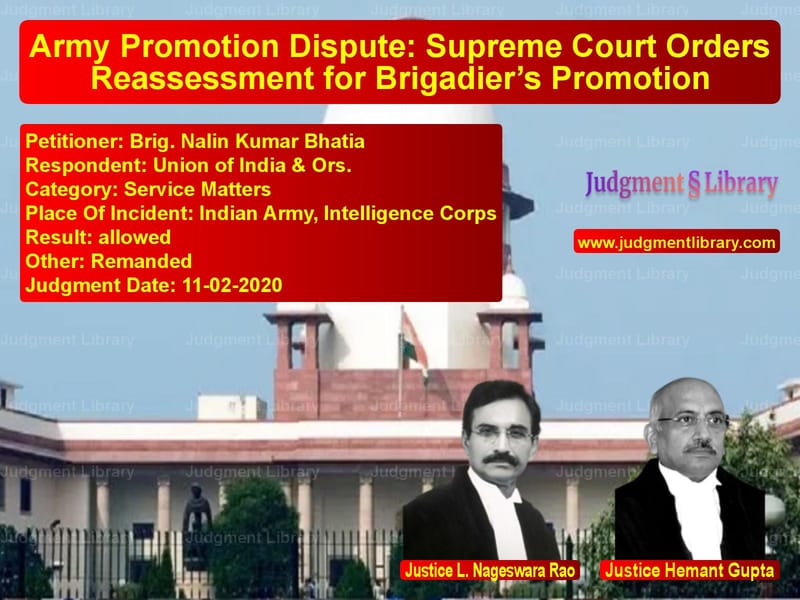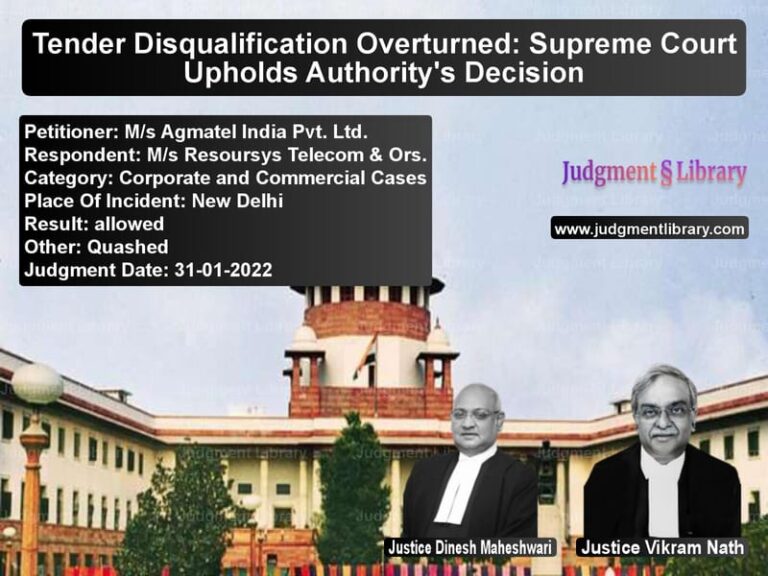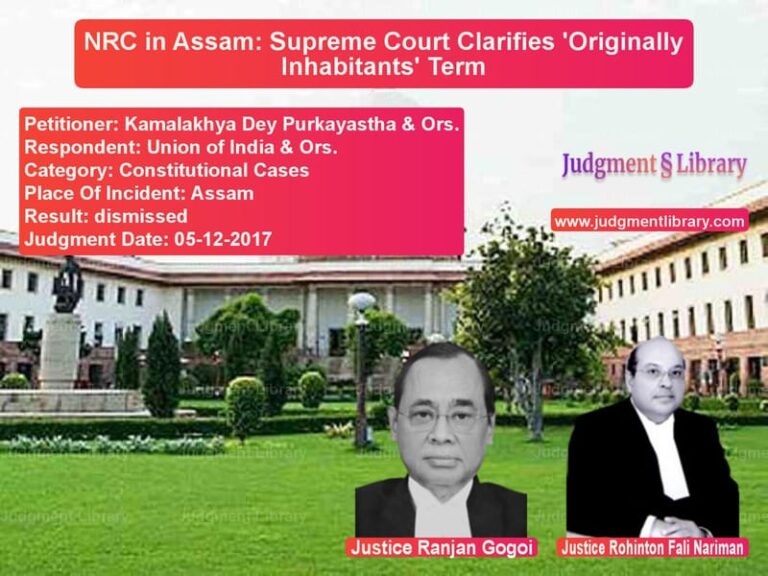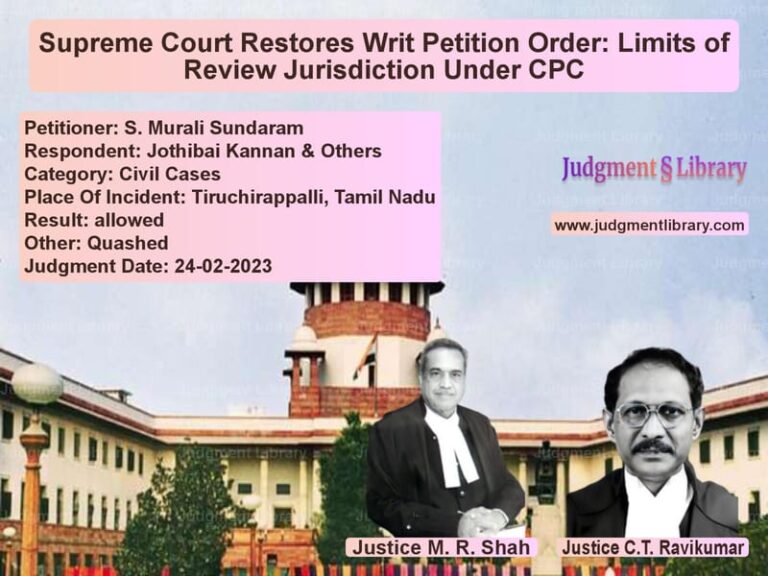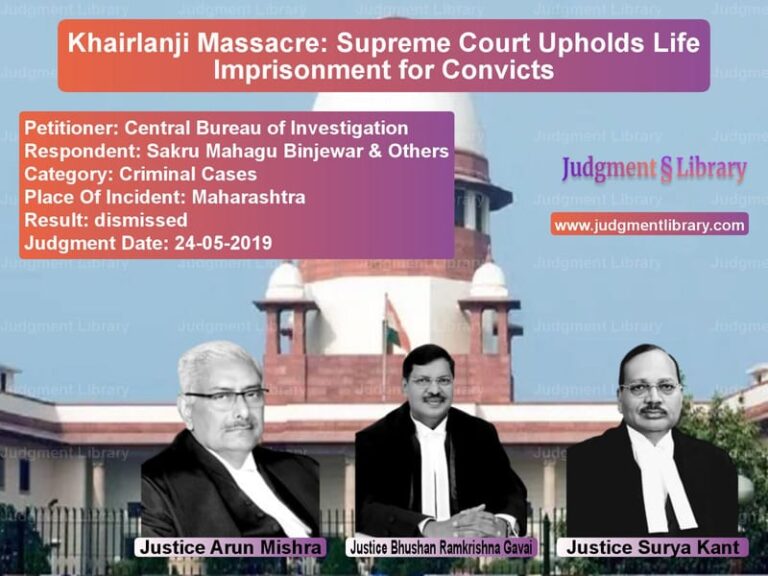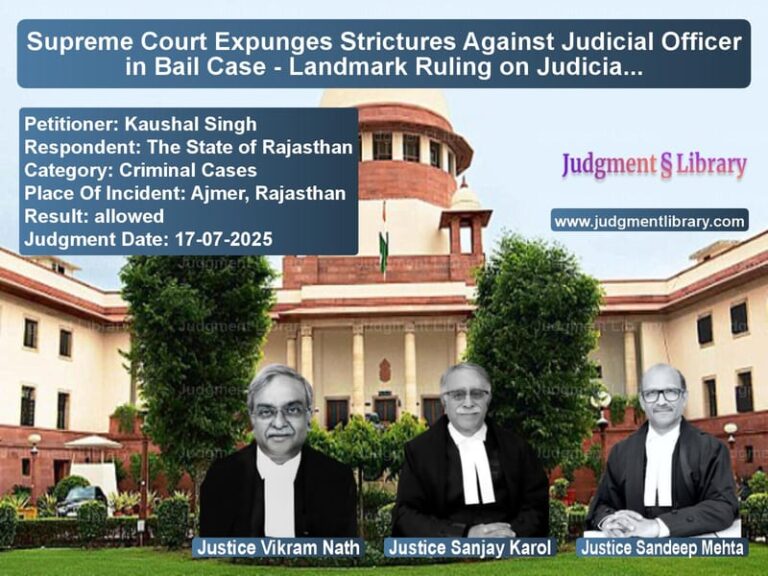Army Promotion Dispute: Supreme Court Orders Reassessment for Brigadier’s Promotion
The case of Brig. Nalin Kumar Bhatia vs. Union of India revolves around the non-empanelment of the appellant for promotion to the rank of Major General. The Supreme Court, in its judgment, examined whether the selection process followed by the Army was in line with the promotion policy and constitutional principles. The verdict, which overturned the decision of the Armed Forces Tribunal, sheds light on the importance of procedural fairness in military promotions.
Background of the Case
The appellant, Brigadier Nalin Kumar Bhatia, was commissioned into the Mechanized Infantry of the Indian Army on June 13, 1981, and later transferred to the Intelligence Corps in May 1991. He was promoted to the rank of Brigadier in September 2008. His case for promotion to Major General was placed before the Selection Board on April 24, 2015, but he was not empanelled. A subsequent review in September 2015 also resulted in non-empanelment.
Feeling aggrieved, the appellant filed an Original Application (O.A.) No. 64 of 2015 before the Armed Forces Tribunal, Mumbai, seeking reconsideration of his case. He challenged the Army’s evaluation process, arguing that it was arbitrary and in violation of the prescribed promotion policy.
Petitioner’s Arguments
The appellant contended that:
- He was the only eligible officer from the Intelligence Corps (1981 batch) and should not have been ignored.
- His service record was exemplary, yet his profile was unfairly compared with officers from the 1980 batch.
- The decision to deny him promotion violated Articles 14 and 16 of the Constitution, as it was not based on the established promotion policy.
- The policy of the Army mandates batch-wise consideration for promotions, and the deviation from this standard was unjust.
- His non-empanelment was influenced by uncommunicated adverse remarks in his Confidential Reports (CRs).
Respondent’s Arguments
The Union of India defended the selection process, stating:
- The Army follows a detailed and structured process for promotions, as per the policy dated May 6, 1997.
- The promotion system underwent a major change in 2009, introducing a quantification model to enhance transparency and objectivity.
- Several factors influence promotion, including war reports, command appointments, confidential reports, and honors and awards.
- The appellant had been evaluated fairly, and his performance did not meet the criteria for promotion.
- The value judgment of the Selection Board plays a critical role in assessing an officer’s suitability for a higher rank.
Supreme Court’s Key Observations
The Supreme Court, after a detailed review, found flaws in the selection process. Key observations included:
- The appellant’s non-empanelment was not supported by strong reasons, despite securing 89.667 marks in the first selection and 90.469 marks in the review selection.
- The selection board’s reliance on subjective “value judgment” over quantifiable criteria was inconsistent with the promotion policy.
- The policy prioritizes Confidential Reports (CRs), and an officer should not be deprived of promotion solely on the subjective assessment of the board.
- The comparison with earlier batches was unjustified and contrary to the batch-wise consideration policy.
Important Judicial Statements
The Supreme Court rejected the government’s argument that military promotions should be left entirely to the discretion of senior officers, stating:
“There is no presumption that a decision taken by persons occupying high posts is valid. All power vested in authorities has to be exercised in accordance with constitutional principles.”
The Court further emphasized that the selection board’s decision must align with established policies and cannot be based on arbitrary discretion.
Final Verdict
The Supreme Court set aside the decision of the Armed Forces Tribunal and ordered a fresh review of the appellant’s empanelment strictly in accordance with the promotion policy. The respondents were directed to complete this exercise within six months.
This judgment reinforces the principle that even in military promotions, decisions must adhere to transparent, fair, and objective criteria.
Petitioner Name: Brig. Nalin Kumar Bhatia.Respondent Name: Union of India & Ors..Judgment By: Justice L. Nageswara Rao, Justice Hemant Gupta.Place Of Incident: Indian Army, Intelligence Corps.Judgment Date: 11-02-2020.
Don’t miss out on the full details! Download the complete judgment in PDF format below and gain valuable insights instantly!
Download Judgment: Brig. Nalin Kumar Bh vs Union of India & Ors Supreme Court of India Judgment Dated 11-02-2020.pdf
Direct Downlaod Judgment: Direct downlaod this Judgment
See all petitions in Promotion Cases
See all petitions in Disciplinary Proceedings
See all petitions in Judgment by L. Nageswara Rao
See all petitions in Judgment by Hemant Gupta
See all petitions in allowed
See all petitions in Remanded
See all petitions in supreme court of India judgments February 2020
See all petitions in 2020 judgments
See all posts in Service Matters Category
See all allowed petitions in Service Matters Category
See all Dismissed petitions in Service Matters Category
See all partially allowed petitions in Service Matters Category

